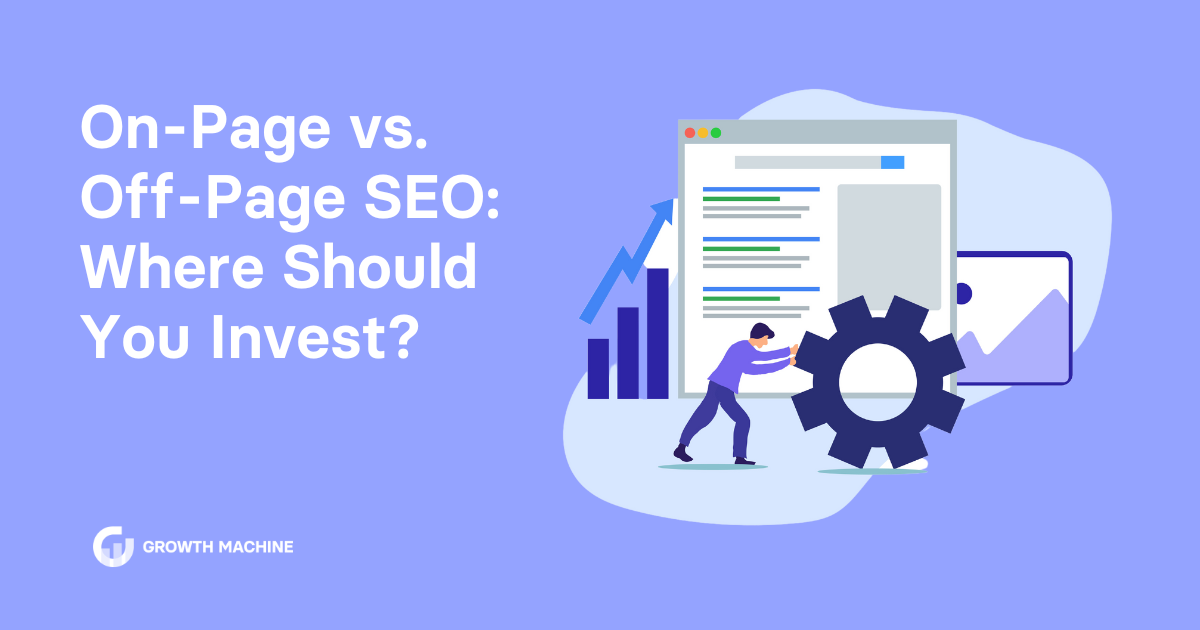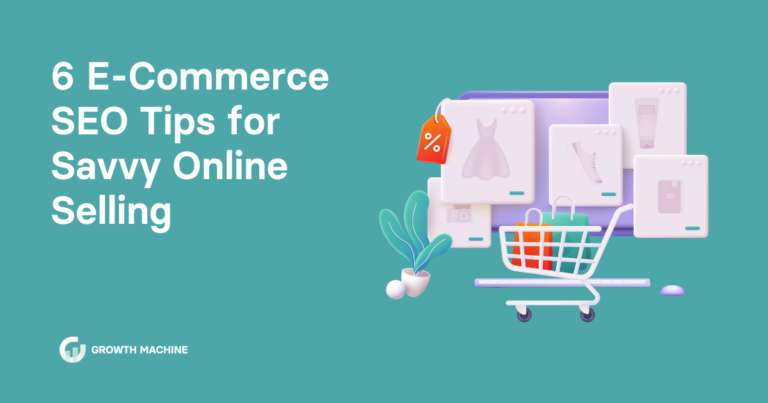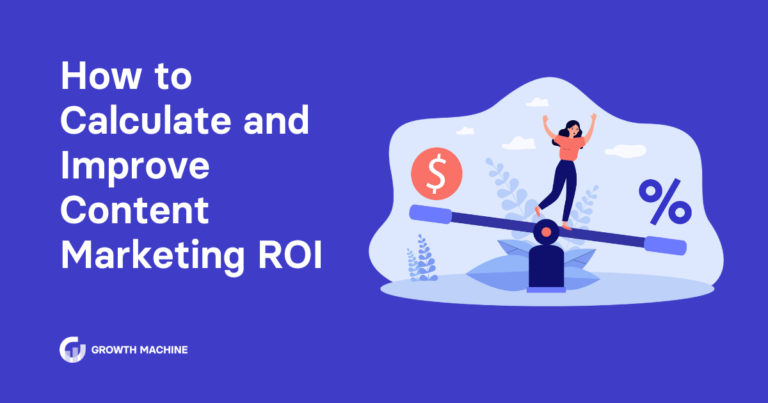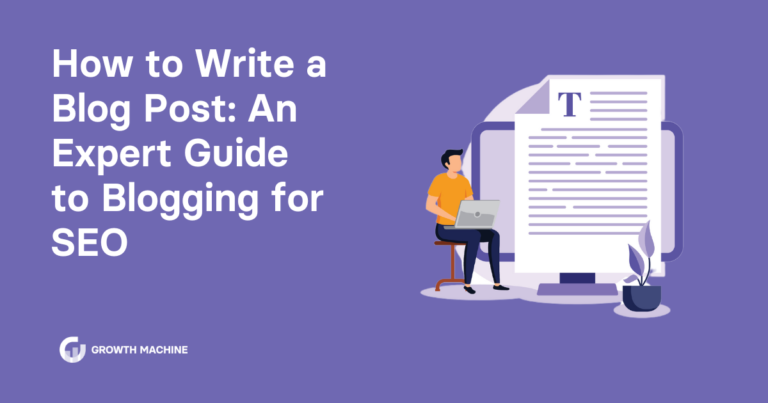On-Page vs. Off-Page SEO: Where Should You Invest?
Search engine optimization (SEO) is the backbone of digital marketing. Sure, you can pay for traffic to your site, but nothing beats the power of organic traffic earned by positioning your brand as an authority.
There are a lot of ways to do SEO, but the two most common are on-page and off-page SEO. Whether you’re a seasoned marketer or a total beginner, it’s important to understand how these strategies differ to boost your site’s visibility and ranking over time.
In this guide, we’ll explain the differences between on-page vs. off-page SEO, and how your business can leverage both to extend your online reach.
What Is On-Page SEO?
On-page SEO refers to all of the measures you take on your own website to boost your position in search engine rankings. This mostly comes down to optimizing user-facing content, but it also includes improving the HTML source code on your web pages.
On-page optimization includes a lot of factors, but these are the most common.
Keywords
With keyword research and optimization, you find the right keywords for your users’ search intent and strategically place them into your site’s web copy.
This not only helps search engines understand your content and rank it accordingly, but it also helps potential customers find content that solves their biggest pain points.
Meta Data Optimization
Meta data tells search engines what your site is about. Search engines then feature this information on the search engine results pages (SERPs) to attract users to your site. Optimize image alt text, title tags, and meta descriptions on every page to steadily boost inbound traffic to your site.
Page Content Optimization
Search engines favor unique content that solves users’ pain points. Instead of throwing together page copy that’s an obvious play at SEO, create copy for users first and optimize it for SEO after the fact.
Don’t forget to format the copy with plenty of headers, bullets, internal links, and images to engage your readers.
Many businesses want to create their own content, but this is usually easier said than done because it requires so much research. You have to find the right target keywords, generate topics your readers will love, and make your copy search engine-friendly, too.
When it comes to SEO content creation, it’s generally best to rely on SEO experts like Growth Machine to create authority-boosting content at scale.
Page Speed and Mobile-Friendliness
Slow-loading sites have high bounce rates, which is bad for both human users and search engines.
With on-page SEO, you regularly check how your site renders on mobile devices. The goal is to quickly address problems before they affect the user experience or your website rank.
Core Web Vitals
Did you know that search engines like Google monitor your website performance? Search engines want to refer users to high-quality sites, so they carefully monitor how you treat search engine users. This is why metrics like engagement rates, page loading times, and time on page are some of the most important factors for search engine rankings.
What Is Off-Page SEO?
With off-page SEO, you improve your site’s reputation and trustworthiness by optimizing factors outside of your website.
You don’t have as much control over off-page SEO as you do with on-page SEO, but it can still make a difference in the rankings.
Off-page SEO covers a lot of territory, but these are the most common off-page SEO factors.
Backlinks
You earn a backlink any time another website links to yours. Quality trumps quantity with link-building, so the goal of off-page SEO is to generate as many high-quality backlinks as possible.
You can earn backlinks in so many ways, including:
- Guest posting on relevant blogs, which you can source through networking or through cold outreach
- Speaking as a podcast guest
- Creating link-worthy website content or assets, like infographics
- Doing content marketing collaborations with influencers or bloggers
- Using a white hat linkbuilding service from an SEO agency like Growth Machine
Social Media
It isn’t a major ranking factor, but search engines do look at your social media presence in the context of your search engine presence. Being active on social media platforms like Facebook, Instagram, Twitter, and LinkedIn (and even forums like Reddit) could give you a much-needed off-page SEO boost.
Local SEO
Search engines want proof that you’re legitimate, and local business listings offer a lot of legitimacy to your company. Listings via online directories like Google Business Profile (formerly Google My Business) and Yelp boost your visibility, especially in local search. This is ideal if you have a brick-and-mortar store, but investing in local SEO is still a great way to steadily boost your domain authority over time.
On-Page vs. Off-Page SEO
On-page and off-page SEO aren’t mutually exclusive. They work together to enhance your site’s authority and improve rankings. For example, you can’t earn backlinks (off-page SEO) if your landing page loads slowly (on-page SEO).
On-page and off-page SEO share several similarities, including:
- Shared goals: Optimizing both on-page and off-page SEO will steadily boost your website’s search engine rankings. They both have the same goal, but they achieve that goal in different ways.
- User focus: Both on-page and off-page SEO focus on enhancing the user experience. Whether it’s through providing high-quality content (on-page) or earning brand mentions from other sites (off-page), the end goal is to serve the people visiting your site.
- Continuous improvements: You aren’t ever really “done” with on-page or off-page SEO. Search engine algorithms and user preferences change over time, so you need to stay on your toes to continue ranking well.
- Keyword strategy: Both on-page and off-page SEO rely on keywords to boost rankings. On-page SEO does this directly through creating new content and optimizing meta data, while off-page SEO does this indirectly through guest post backlinks and anchor text.
But that’s where the similarities end. If you’re trying to understand the differences between on-page vs. off-page SEO, they differ in terms of:
- Control: You have more control over on-page SEO. But with off-page SEO, you rely on other platforms and sites to contribute to your rankings. If someone decides to remove a backlink, there’s not much you can do about it.
- Focus areas: On-page SEO focuses on website elements like your content, HTML structure, meta information, and page performance. Off-page SEO, on the other hand, focuses on external factors like backlinks, social signals, and local SEO.
- Time to value: It’s never a guarantee, but on-page changes can lead to more immediate changes in your rankings. Off-page SEO strategies require building quality backlinks and a reputation, so it takes longer for your site’s ranking to reflect these improvements.
- Execution: Both on-page and off-page SEO require a lot of work, but you execute them differently. You do on-page SEO by tweaking your web copy and back end source code. Off-page SEO happens outside of your website. There’s no coding required, thankfully, but you still need to invest in building relationships via social media marketing or guest blogging.
In the battle between on-page vs. off-page SEO, there’s no winner. Your business needs to use a combination of both strategies to see the biggest gains in search engine rankings over time.
Dominate Organic Search With the Right Marketing Strategy
On-page and off-page SEO work together to generate amazing results for your business. You won’t see results overnight, but with the right strategy, you’ll optimize both on-page and off-page ranking factors to come out ahead in the search engine game.
Implementing SEO best practices can feel overwhelming at first, but it’s a piece of cake if you break on-page and off-page SEO into actionable steps.
Or you could skip the line by outsourcing all of the hard work to Growth Machine’s team of SEO experts. Contact Growth Machine now to create a unique SEO strategy for your business.







